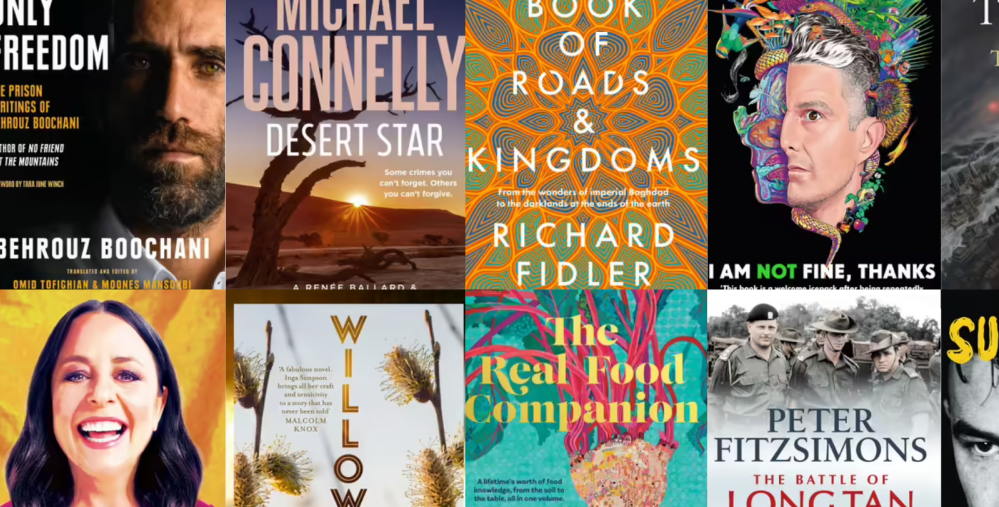Toby Ord is a moral philosopher focusing on the big picture questions facing humanity, whose latest book is called The Precipice: Existential Risk and the Future of Humanity. Born in Australia, he is a Senior Research Fellow at the Future of Humanity Institute at Oxford University. He is the founder of Giving What We Can and co-founder of the Effective Altruism movement, which has raised more than a hundred million pounds for some of the world’s most deserving causes. He has also advised DeepMind, the World Health Organisation, the World Bank, the World Economic Forum, the US National Intelligence Council and the UK Prime Minister’s Office, among others. He lives in Oxford.
Today, Toby’s on the blog to answer a few of our questions about his latest book. Read on …
Tell us about your book, The Precipice.
TO: At its heart, it is a book about humanity: about how far we’ve come over the 10,000 generations before us, how far we might be able to go in the countless generations to follow, and how this entire future is at stake. Our increasing technological power has brought us to a crucial time in humanity’s story — The Precipice — where we have the power to destroy ourselves without the wisdom to ensure we don’t. This gives our time immense meaning and importance in the grand story of humanity. How we respond to this predicament is the defining issue of our time.
This is a book about existential risk, coming at a time when we’re facing one of the biggest challenges in recent global history with the COVID-19 epidemic. Have recent events validated or challenged your way of thinking?
TO: Existential risks are risks on the very largest scale: those that threaten to permanently destroy our long term potential, whether through extinction or unrecoverable collapse of civilisation. The COVID-19 pandemic is not itself an existential risk, but it reminds us of how vulnerable we still are, and that once-in-a-century events can and do happen. It makes me glad I spent as long as I did exploring the dangers of pandemics in the book.
Your book calls for ‘a major reorientation in the way we see the world, our history, and the role we play in it.’ Ideally, what would that look like?
TO: We rarely think about deep time, either in terms of the 100 billion people who came before us and fashioned our world, or the trillions who may inherit it from us. Our ethical thinking, in everyday life and academia, is usually focused on individual choices. Sometimes we ask what our community or nation should do, or occasionally even take a global perspective of everyone alive today. I think we need to take this a step further, and to sometimes ask ‘what should humanity do?’ What would be the most important issues from the perspective of humanity? What part does my generation need to play in this? And what part do I need to play?
What is the most effective thing the global population can now do in order to face the risks that you write about and secure ourselves a future?
TO: I think we need to inform ourselves about these issues and start a public conversation about the pivotal importance of safeguarding our future. We have eventually built strong discussions and movements around the existential risks of nuclear war and climate change, but have been slow to notice the general pattern — concern about any and all ways in which we imperil our entire future. And we need to address the issues from this more general level, or we risk always taking many decades before we can build up these movements around any particular risk, losing valuable time that we may not have.
You’re a co-founder of the Effective Altruism movement. Can you tell us a little bit about that and how you think we might be able to embrace it as a global population?
TO: Effective altruism means making our altruistic impulses really count, by using reason and evidence to not merely help others, but to help them as effectively and as much as we can. This can be applied in your giving, through giving to societies such as Giving What We Can, where people make a pledge to give a tenth of their income as effectively as possible, and charity evaluators such as GiveWell, who advise on how to do so. And it can also be applied in terms of ethical career choice — with organisations such as 80,000 Hours, who advise people on how they can make the greatest positive difference through the vast part of their lives that they spend at work.
In your experience, what is the biggest misconception that people have about the field of moral philosophy? Do you think more people in government and the technological industries should study it?
TO: I think the biggest misconception (by philosophers and the public alike) is that it is all about what not to do. We can each do so much good in our lives, but there is little contemplation about how we can best do that (compared to vast discussion on how to not do bad). Because we can each save dozens or hundreds of lives through donating part of our salary if we choose to, understanding that doing good isn’t some optional extra of little importance: it is a life or death issue. I think moral philosophy should be brought in as something that everyone studies at some point during our schooling. However it is a great challenge to design a course that shows how much uncertainty and disagreement remains while not just making people feel that they can choose whatever parts of morality they fancy.
What do you hope readers will discover in The Precipice?
TO: A sweeping view of the grand story that they are part of, and a desire to rise to the challenges of this key moment they live in.
And finally, what’s up next for you?
TO: I’ve just spent a long time on the intellectual side of things: honing these ideas and working out how best to express them. I’m eager to get on with applying them in policy, and building a movement of people who strive to protect humanity’s long term potential.
Thanks Toby!
—The Precipice: Existential Risk and The Future of Humanity by Toby Ord (Bloomsbury Australia) is out now.

The Precipice
Existential Risk and the Future of Humanity
The Precipice is a landmark book that provides a new way of thinking about our time.
We live during the most important era of human history. In the twentieth century, we developed the means to destroy ourselves – without developing the moral framework to ensure we won't. This is the Precipice, and how we respond to it will be the most crucial decision of our time. Oxford moral philosopher Toby Ord explores the risks to humanity's future...







 Booktopia’s Best Non-Fiction Books of 2022
Booktopia’s Best Non-Fiction Books of 2022  Top 10 Books for Dad this Christmas!
Top 10 Books for Dad this Christmas!  On The Pod: Lynette Noni, Larry Emdur and Brendan Jones!
On The Pod: Lynette Noni, Larry Emdur and Brendan Jones!
Comments
No comments